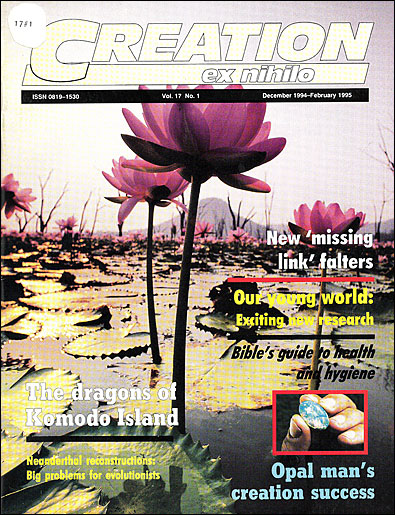Genesis and the lost tablets
One of my former students wrote to ask me for a comment and an assurance as to the literal nature of the early chapters of Genesis.
Other peoples had records touching the activities of Genesis 1 to 11. The Babylonian epic known as Enuma Elish told of creation, with the god Marduk cutting the monster crocodile god Tiamat in two, then making the heavens from one half and Earth from the other. The river Euphrates flowed from one eye, and the Tigris through the other.
When a copy of this tablet was found in the palace of the Assyrian King Ashur-bani-pal (he died in 625 BC) it was claimed that this was the original creation tablet, and so the creation could only have come into the Bible after that date. Ezra was given the credit for the Genesis account, instead of Moses, who lived about 1,000 years earlier. Now other copies of the Babylonian epic, dating from hundreds of years earlier, have been found.
Biblical record superior
The Epic of Gilgamesh was also found in the same Assyrian palace, and the eleventh of the 12 fragmentary tablets had a distorted version of the Flood. But again it was dramatically inferior to the Biblical record, with the gods terrified as the flood waters rose higher and higher. They believed they might be washed out of Heaven itself.
Then when the flood was over, the gods came ‘like a swarm of flies’ to the sacrifice that the Babylonian Noah, Utnapishtim, offered. Poor gods, they were hungry—men had not been around to feed them!
In the Babylonian story, man was created to undertake menial work which was beneath the dignity of the gods. In Genesis, man is created as the friend of God.
In more recent years the fragmentary Epic of Atrahasis has been translated, and now it is seen that creation, the role of man, and the Flood are brought together as one continuous record. Suddenly the world of Biblical archaeology has had to recognize that the comparable (but dramatically superior) records in Genesis must be accepted as an actual historical presentation. The famed Professor W.F. Albright (now deceased) wrote that the Genesis details of the Flood contain elements which predate any other description.
The Tower of Babel has a parallel Babylonian record, elaborated by another famous archaeologist, Professor Samuel N. Kramer. He likens the Babylonian record to that of the Bible.
Endorses Bible’ account
The fact of long-living men is endorsed from the Sumerian king list found at Kish, south of modern Baghdad. It has recently been shown that scholars had mistranslated its figures of tens of thousands of years. These Sumerians used a system based on decimals and not on sixties as previously thought. Now it is seen that the total given in the Sumerian list is remarkably close to the total figures in Genesis chapter 11. (It seems that conditions were different before the Flood—and incidentally, this throws great doubt on the long ages of millions of years that are so glibly stated by many scholars.)
The Table of Nations in Genesis chapter 10 used to be regarded as mere legend. Again quoting Professor W.F. Albright, he wrote that it has been found to be ‘astonishingly accurate’.
Even in so-called secular archaeology, ‘legends’ are taken much more seriously these days. One example is the Assyrian king list which goes back to the days when those kings ‘lived in tents’. The first of them was named Tudiya, and his actual existence was not taken very seriously. Then his name turned up as an actual king who had entered into a contract with the King of Ebla (in modern Syria) about 2200 BC. Another Ebla contract was with the Egyptian Pharaoh Pepi I, already known in Egyptian records.
It’s a wonderful fact that the Bible records have been preserved intact, without needing to be dug up. These are not camp-fire stories which grew in the telling, not just poetry that is merely symbolic, but factual records of the highest order.
© New Life. Used with permission.
Clifford A. Wilson, Ph.D.
Dr Wilson is known for his archaeological work and his book refuting Erich von Däniken’s ‘gods from outer space’ theory. He has been in charge of Psycholinguistics at Australia’s Monash University and was Professor of Early Childhood Education at the University of South Carolina.


Readers’ comments
Comments are automatically closed 14 days after publication.